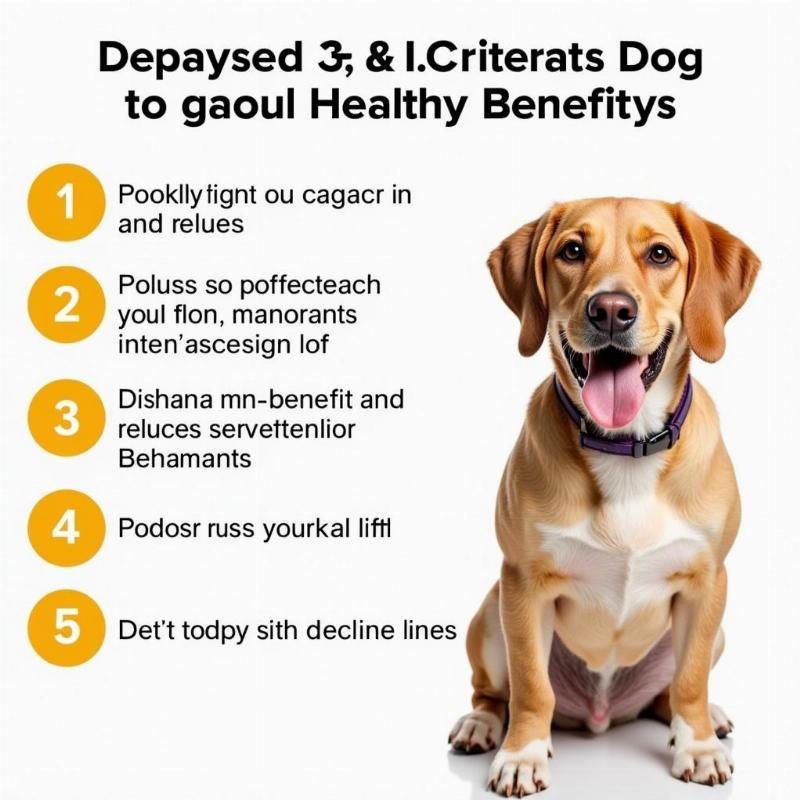Neutering is a common procedure for dogs in the US, and a question many owners have is, “Do dogs get fat after neutering?” The simple answer is: they can, but it doesn’t have to be inevitable. While neutering does influence a dog’s metabolism, weight gain is more often a result of lifestyle changes rather than the procedure itself. Understanding the connection between neutering and weight gain can help you keep your furry friend healthy and happy.
Neutering, which involves removing the reproductive organs, can alter hormonal balance in both male and female dogs. This can lead to a decreased metabolic rate, meaning they burn fewer calories at rest. Additionally, appetite can sometimes increase post-neutering. If food intake isn’t adjusted and exercise levels remain the same, weight gain is likely. However, with proper diet and exercise, your dog can maintain a healthy weight after neutering.
Understanding the Hormonal Changes After Neutering
The hormonal shift after neutering is the primary reason why dogs are predisposed to weight gain. The removal of the testes in males reduces testosterone production, while spaying in females eliminates estrogen and progesterone. These hormones play a role in regulating metabolism and appetite. The decrease can lead to a slower metabolism and potentially, an increased appetite.
Managing Your Dog’s Weight After Neutering
Don’t worry, there are plenty of ways to manage your dog’s weight after neutering! It starts with a proactive approach involving diet and exercise modifications. Here are some key strategies:
-
Adjusting Food Intake: After neutering, consider switching to a specialized dog food formulated for neutered or less active dogs. These formulas typically contain fewer calories and higher fiber content to help your dog feel full and satisfied with smaller portions. Consult your veterinarian for specific recommendations based on your dog’s breed, age, and activity level.
-
Increasing Exercise: Regular physical activity is crucial for maintaining a healthy weight. Aim for daily walks, playtime in the park, or engaging in dog sports like agility or flyball. Adjust the intensity and duration of exercise according to your dog’s breed and physical condition.
-
Monitoring Weight Regularly: Keep track of your dog’s weight by weighing them at home or during regular veterinary check-ups. This helps identify any weight gain early on and allows you to make necessary adjustments to their diet and exercise regimen.
Is Weight Gain Inevitable After Neutering?
No, weight gain after neutering is not inevitable. While the procedure does influence metabolism, a proactive approach to diet and exercise can prevent unwanted pounds. Just like humans, dogs need a balanced diet and regular physical activity to stay healthy.
What kind of food should I feed my neutered dog?
Neutered dogs often benefit from food specifically formulated for their altered metabolism. Look for options with controlled calories and increased fiber.
How much exercise does my neutered dog need?
The amount of exercise varies depending on the breed, age, and size of your dog. Consult your vet for personalized recommendations. anti itch chews for dogs
Benefits of Neutering Beyond Weight Management
While weight management is a concern for some owners, neutering offers several significant health and behavioral benefits. It can help prevent certain cancers, reduce the risk of unwanted pregnancies and associated complications, and can even curb some undesirable behaviors like roaming and aggression.
 Benefits of Neutering Dogs
Benefits of Neutering Dogs
“Neutering is a responsible choice for dog owners, offering numerous health and behavioral benefits. While weight gain can be a concern, it’s manageable with proper diet and exercise,” says Dr. Emily Carter, a veterinary specialist in canine nutrition.
“Regular exercise is key for maintaining a healthy weight in neutered dogs,” adds Dr. Michael Davis, a certified professional dog trainer. “Find activities your dog enjoys and make it a part of your daily routine.”
In conclusion, while neutering can influence a dog’s metabolism and potentially contribute to weight gain, it’s not a foregone conclusion. By proactively adjusting your dog’s diet and exercise routine, you can help them maintain a healthy weight and enjoy a long, happy life. Remember to consult with your veterinarian for personalized advice tailored to your dog’s specific needs.
FAQ
- Do all dogs gain weight after neutering? Not all dogs gain weight after being neutered, but the risk is increased due to hormonal changes.
- When should I change my dog’s food after neutering? Talk to your vet about the best time to transition to a new food, typically a few weeks after the procedure.
- What are the signs of obesity in dogs? Difficulty breathing, lethargy, and a noticeable increase in body fat are some signs of obesity.
- How often should I weigh my dog after neutering? Regularly weighing your dog, even monthly, can help you monitor any weight changes and adjust their lifestyle accordingly.
- Can neutering prevent all types of cancer in dogs? While neutering can significantly reduce the risk of certain reproductive cancers, it doesn’t eliminate the risk of all cancers.
- Besides diet and exercise, are there other ways to manage my dog’s weight? Consult your veterinarian about medications or supplements that might be appropriate for your dog’s specific situation.
- How can I encourage my dog to exercise more? Try incorporating interactive toys, games, and regular walks into their routine.
Beautdogs.us is your trusted source for comprehensive dog care information, breed insights, and product recommendations. We cater to both new and experienced dog owners, providing expert advice on all aspects of canine companionship. Contact us for more information: Email: [email protected], Phone: +1 501-555-7529. Beautdogs.us is here to help you navigate the joys and challenges of dog ownership.